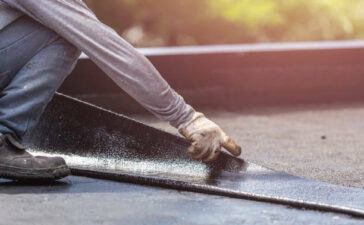Living off the grid creates a certain image for the average person. However, while living off the grid was characterized as checking out of society, living off the grid means nothing more than disconnecting from public utilities.
More Americans than ever are considering moving into homes that are off the grid. One of the reasons for this is the number of blackout events. Since 2015, blackout events impacting 50,000 people or more have increased by 60%.
Living in an off-the-grid home comes with challenges, but advancing technology has made it far easier than it used to be. Here are some of the features you’ll need to streamline your off-the-grid living.
Heat and Power
Most homeowners living off the grid have opted for backyard solar panels to power their homes. It uses a free, renewable resource, and solar panels have never been more affordable, but what if you need an alternative?
Firstly, you could hire a hearth & fireplace installer to install a fireplace that could keep you warm through the coldest months. This way you won’t be dependent on any technology and you could switch between the fireplace and the solar panels.
Opt for a portable power station. Essentially a generator, these portable power stations act as a backup when the power goes down. Depending on your tastes, you may need to keep some gas or other fossil fuel available for those rare moments you need to switch to a different power source.
Some more modern generators even come with solar panels attached, so they can charge and hold their charge when the sun is out.
Portable Refrigerator
Keeping food unspoiled, fresh, and ready to go is one of the biggest challenges you must overcome when living off the grid.
Most people don’t have the power or space for a full-size refrigerator. So instead, consider a portable refrigerator for your kitchen.
Look for a model containing high-density foam that is designed to minimize air leaks. Also, ensure that settings allow your portable refrigerator to be plugged into your vehicle or portable power unit if the power goes down.
Gas Range
Chances are you don’t have a stove inside your off-the-grid house. So instead, think about a freestanding gas range to add to your arsenal.
Luckily, it’s as easy as taking an ordinary gas stove and converting it into something that uses liquid propane. While buying liquid propane is an extra hassle to add to your day, this energy source is relatively cheap. Unfortunately, however, it’s not an environmentally friendly option.
Make sure your stove is suited to the size of your home. If you live in a tiny home, you may need to consider something smaller. Also, check how much heat output your range offers to ensure it can get hot enough to cook your food all the way through fast.
Countertop Dishwasher
Did you know more than 250,000 Americans have already embraced off-the-grid living?
Keeping dishes clean is an annoyance afflicting people living on and off the grid. However, living off the grid means that water resources could be scarce, so learning how to use them wisely is critical to maintaining your homestead.
Countertop dishwashers use less water than conventional dishwashers and may even come with a built-in water tank. Built-in water tank models are ideal if you don’t have a water hookup.
Despite losing less water and their diminutive size, countertop dishwashers perform to the same standard as their full-sized cousins. Some models even come with a range of settings to help you get the perfect wash.
Composting Toilets
One of the biggest drawbacks of off-the-grid living is losing access to indoor plumbing. Unless you feel like doing it in nature, you need an alternative. The off-gridder may decide to turn to the composting toilet.
Composting toilets are unique because they can hold waste from two people for up to six weeks. While holding waste, the toilet converts it into organic compost, enabling you to provide a ready-made supply of compost for your garden.
Many compostable toilets are designed for off-the-grid living, allowing them to include extra features, including odor control.
Tankless Propane Water Heater
Hot water on demand is another luxury many off-gridders believe they have to live without when they move away from public utilities. Unfortunately, off-grid living may not provide natural access to cold water, but there’s an alternative.
If you can’t bear to give up your cold showers, a tankless propane water heater enables you to heat your water for showering and cleaning. The tank uses propane as its fuel source of choice and is battery-powered.
To use it indoors, you must install a duct or flue pipe to stop the dangerous gases from leaking into your home.
Some of the more advanced models may even come with a solar panel for you to charge your tankless water heater using renewable energy.
Water Filtration Systems
Clean running water is something else many householders living on the grid-like to take for granted. But moving off the grid means adapting to a new reality. Unless you live in the wilderness, you can’t just head to the river and drink water directly from it.
Relying on bottled water will increase your costs and your carbon footprint, meaning an in-house water filtration system is essential for your home.
Modern water filtration systems can remove impurities and monitor water pressure inflow and outflow to ensure correct function.
With something so important, it’s best to splurge on a more effective filtration system to ensure you have an uninterrupted supply of fresh, drinkable water to drink, bathe, and use.
Conclusion
Living off the grid comes with challenges, but modern technology enables families to overcome them relatively easily.
While you may need to invest thousands of dollars in reclaiming the luxuries of on-the-grid living, it’s an eco-friendlier way to live and will ultimately lead to lower bills in the long run.
What are your top hacks for an off-the-grid living?






